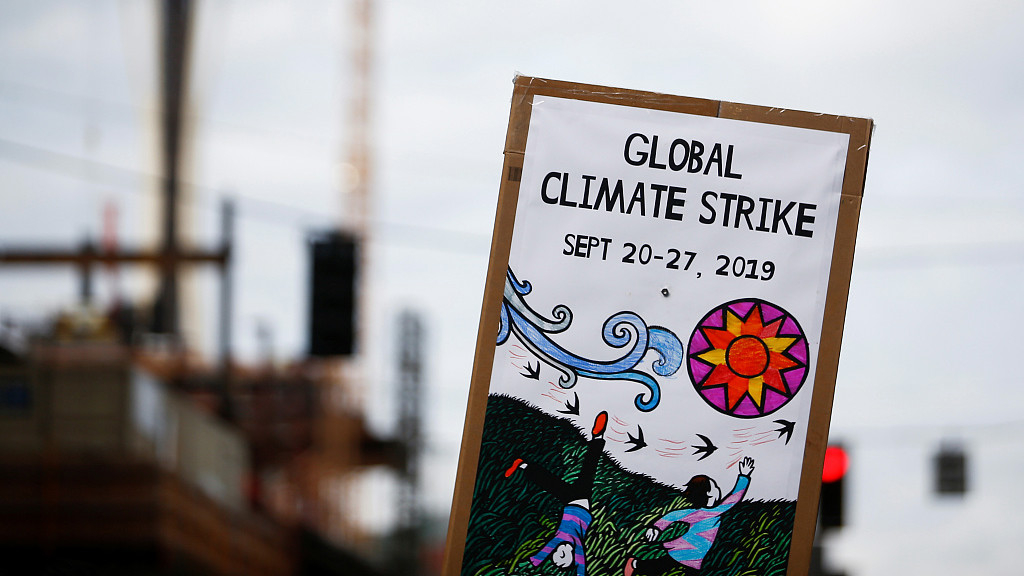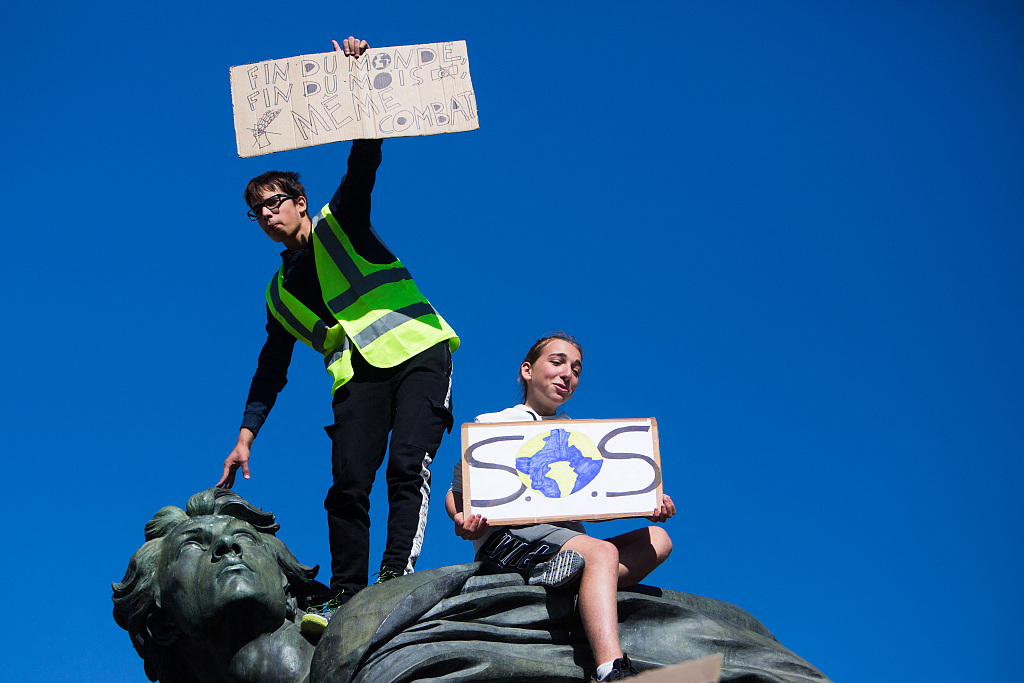
Editor's note: Zhao Yuanzhen is an opinion editor with CGTN Digital. The article reflects the author's opinion and not necessarily the views of CGTN.
A global resistance against policymakers' passive attitude to address climate change is underway. On Friday, the largest-ever climate strikes were staged across the world. But whether these voices would fall on the ears of the politicians remains doubtful.
On Monday, the UN Climate Action Summit will open in New York, where world leaders are expected to discuss concrete actions to slow down the effects of global warming. It could be a testing moment to see whether the concerns of the youth about their future would be heard by their leaders.
Scientists all over the world believe that global warming is increasing the frequency and strength of extreme weather events such as hurricanes, cold waves, and wildfires. According to a UN report, even if all countries manage to meet their commitments under the Paris Accord, Arctic winter temperatures will continue to rise by three-five degrees Celsius on average by 2050.
Since 1979, Arctic sea ice has shrunk by about 40 percent, endangering the existence of several islands and seaside cities.

Ice floating in the Arctic Ocean. /VCG Photo
Ice floating in the Arctic Ocean. /VCG Photo
The nationalistic shift in global politics has cast a shadow over the efforts to cut carbon emissions. The U.S. withdrawing from the Paris Accord is also a major discouragement for the world to take collective actions. Although under the Paris Accord, countries have laid out ambitious plans to cut carbon emission, but those plans have either not been well implemented or fallen short of targets. It is odd that while world leaders have recognized the importance of slowing down global warming, their actions have not complemented their words.
To understand this, one must know that the issue of climate change goes much beyond environmental issues. Politicians do not consider this as their top agenda because it is not something that voters can immediately benefit from. Fighting against global warming is for the future, and they often have more urgent issues to attend to like employment, education and finance, what their voters care much more about than some "irrelevant" promises that they cannot benefit from.
In this case, it seems that there is still a long way to go in enhancing public awareness toward climate change. But isn't public view also affected by different lobby groups in the society? Behind the efforts to have a greener planet is also an ongoing battle among different interest groups.

A demonstration on climate change in Paris, September 20, 2019. /VCG Photo
A demonstration on climate change in Paris, September 20, 2019. /VCG Photo
Many research reports have suggested that the goal of the Paris Accord, which is to limit the global temperature increase to two degrees Celsius, is simply not safe anymore. Actions are needed to push for the 1.5-degree-Celsius aim. This would require the world to change its current energy structure, and serious reforms are also needed in the land use, urban design transportation and clean energy fields.
It would require the upgrade of the world economy and energy consumption of mankind. Thus traditional oil states like Saudi Arabia would not be happy about this change. The reshuffle of different power groups means that there could still be a long way ahead of a collective action to combat global warming.
In the meantime, there's also the question of how to achieve that goal, specifically how to achieve a balance of interests between developing and developed countries. Should all countries take the same level of responsibility in cutting carbon emissions? That's the question that has been on the debate table for years to which no perfect solutions have been found. For developing countries, their priority is still economic development. A sudden change to clean energy structure is to rip their development rights.
It should be noted that the goal of "green development" should not undermine the economic development and improvements in people's livelihood, not in the long-term at least. To require countries who have not yet entered the industrialized stage aim for similar ambitious goals is not realistic. In the meantime, combating a global problem together means that developed countries must assist developing countries in clean energy. They have promised to mobilize 100 billion U.S. dollars per year to developing countries to help address climate issues. But it has also fallen short of the target.
The road to carbon neutrality has to go through the game of compromises among different interest groups.
(If you want to contribute and have specific expertise, please contact us at opinions@cgtn.com.)